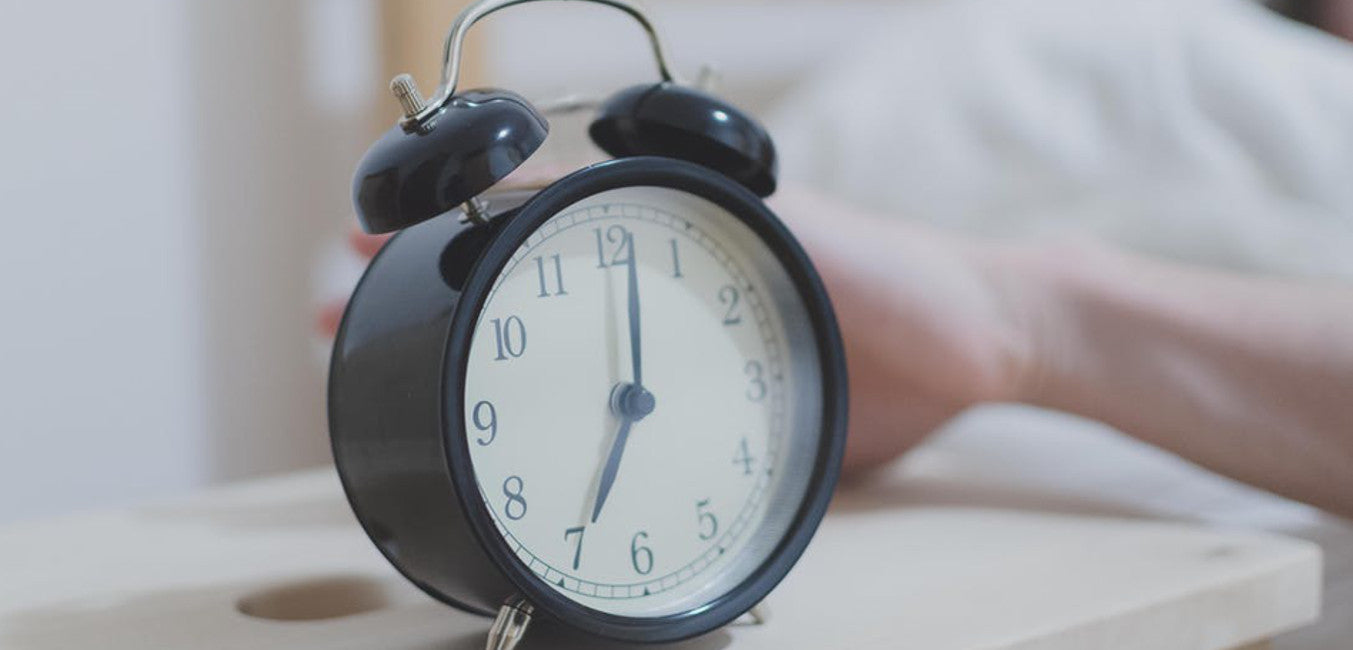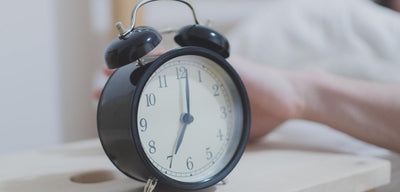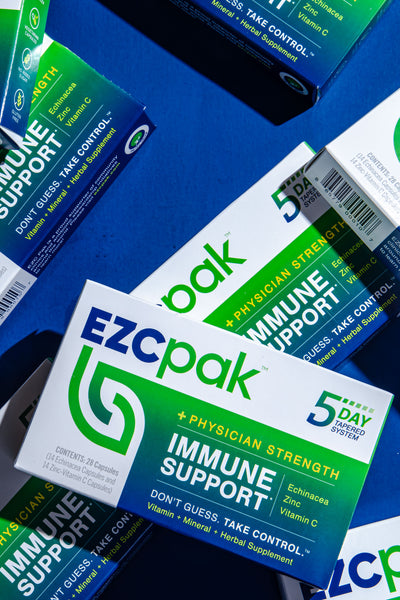As the temperature drops, many of us want nothing more than to curl up in bed and enjoy a restful night’s sleep. But sleeping isn’t so easy for many Americans. In fact, the CDC estimates that one out of three Americans fail to get enough sleep.
And lack of sleep means a whole lot more than just needing an extra cup of coffee each morning. Sleep boosts immune function, and immunity helps ward off cold and flu viruses. In this article, we’ll arm you with eight tips and tricks to help you fall asleep and stay asleep tonight.
1. Settle on a Bedtime
If you find yourself crawling into bed at a different hour every night, then you’ll likely benefit from choosing a bedtime and sticking with it. The National Sleep Foundation indicates that regulating your body’s internal clock may help you fall asleep faster and stay asleep longer.
2. Get Some Exercise
According to the National Sleep Foundation, even 10 minutes of aerobic exercise can vastly improve your sleep quality! For extra points for your internal clock, get that exercise outdoors during daylight.
3. Lower Your Thermostat
Is your thermostat hovering at 74 degrees? Or a chilly 60 degrees? A too hot or too cold bedroom might be keeping you up at night. Try setting the thermostat to 68 degrees.
Says H. Craig Heller, PHD, a biology professor at Stanford University to WebMD: “When you go to sleep, your set point for body temperature -- the temperature your brain is trying to achieve -- goes down.” A cooler room makes it easier on your body to achieve this task.
4. Take a Warm Shower
Before stepping into your comfortable, cool room, consider taking a warm, relaxing shower. This soothing rinse will help you take the day off and unwind. Plus, the shift from warm shower to cool room will cause your temperature to drop quickly, which may help you fall asleep.
If you prefer a bath, that works, too. Add some soothing music and candles if you like.
5. Turn Off Your Electronics
According to Scientific American, the blue light emitted from our beloved electronic devices (think phones, tablets, and TVs) seriously affects our melatonin. Melatonin, a sleep-inducing hormone, works as part of our internal clocks in what is a called a circadian rhythm.
While filters on glasses and some new phones help reduce blue-light exposure (for example, Night Shift on an iPhone), there’s no substitution for turning these devices off an hour or more before bed.
6. Stop Late-Night Eating
For many, a late dinner in front of the television is a common occurrence. If you’re having trouble sleeping, then your midnight mac n’ cheese habit might to be to blame. The National Sleep Foundation recommends finishing your last meal two to three hours before bedtime.
If you must eat right before bed, experts recommend a small pairing of a carbohydrate and protein. This could be a tiny bowl of cereal with milk, or some nut butter with banana.
7. Cover Up That Digital Clock
Do you find yourself glancing at the clock, counting down the hours until it’s time to start the day, worrying you aren’t getting enough sleep? Stop that anxiety by hiding your clock.
Many digital clocks have dim functions, so you can turn the backlighting off completely. If you can’t do that, throw a hat over the screen, or place the clock in a drawer.
8. Splurge on a Pillow You Love
A great pillow can help you stay comfortable, support your neck and head, and even prevent snoring or allergies. Check out Health’s doctor-backed survey of pillows, all available online, for ideas.
Says Dr. Rocco Monto, the Massachusetts-based orthopedic surgeon who curated the survey: “A good pillow should fill the gap between your head and neck and the mattress, and dynamically assume that shape during position changes as you sleep."
Sleep Better, Tonight
Whether you integrate just a few or all of these tips into your nightly routine, know that you’re working hard toward bettering yourself every time you prioritize sleep. Stick with these suggestions, and you’re likely to see an improvement in many aspects of your life, including your ability to fight off cold and flu viruses.






